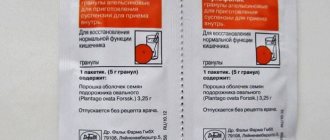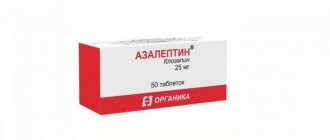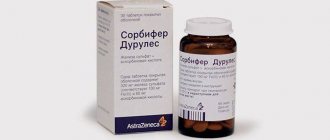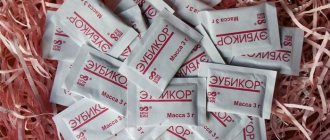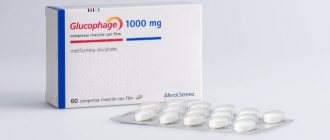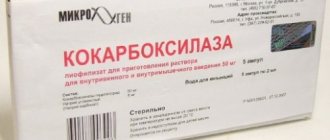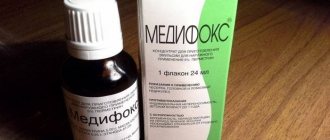- July 12, 2019
- Other drugs
- Smirnova Alexandra
Let's find out what Ketonal tablets help with. They are a non-steroidal anti-inflammatory drug. In clinical practice, the medicine is used to relieve pain of various origins. It weakens the symptoms of inflammation, but many side effects can develop, since the drug does not act selectively, but systemically. This remedy differs from its analogues, first of all, in that it provides more pronounced analgesic effectiveness and provokes much fewer negative consequences.
Indications for taking the drug
Doctors most often prescribe Ketonal to relieve severe pain. The medicine will be effective for the following diseases:
- With bursitis;
- For the treatment of tendinitis;
- Suitable for any type of arthritis;
- Relieves pain during algodismenorrhea;
- Used to treat gout;
- Effective for spondyloarthritis;
- Prescribed after any injury and surgical period.
To relieve severe pain in a particular case, you need to know the correct dosage of the drug. It can be prescribed by your attending physician. Remember that if you consult a specialist, then the risk of side effects will be reduced to a minimum.
Use during pregnancy and breastfeeding
In cases of extreme necessity or the development of unbearable pain, the use of Ketonal is allowed in the first and second trimester. When breastfeeding, taking the drug in any form is prohibited; lactation should be suspended and then treated.
The effect of ketoprofen on the fetus can be negative only in the third trimester. But even when taking painkillers in the early stages of pregnancy, you should warn your doctor about this and follow the dosage instructions very carefully. The toxic effect on the liver, although not great, can play a negative role during pregnancy.
How to use capsules correctly
In case of severe inflammation, you can take Ketonal capsules once. Doctors recommend taking the drug 3 times a day, one tablet. In this case, you should not exceed the maximum dose of 300 mg. Usually this is about 6 tablets.
If the patient has arthritis or osteoarthritis, then doctors prescribe 1 tablet four times a day. To treat algodismenorrhea, you also need to take one tablet 3 times a day.
Be sure to take the capsules with 100 ml of clean water. To prevent patients from developing NSAID gastropathy, you can take the medicine along with antacids.
In addition to regular capsules, there are also Ketonal Duo capsules. They have their own special dosage. You need to take one capsule per day. In rare cases, your doctor may prescribe a double dose. The patient will need to take one capsule twice a day with a time interval of 12 hours. Ketonal Duo should be taken with plenty of water at the time of administration. Capsules must be taken with meals.
How to use the solution?
In pharmacies you can buy Ketonal in the form of a liquid for injection. Usually doctors prescribe 1 ampoule of the drug 3 times a day. This is approximately 0.1 g. drug Ketonal. Sometimes the patient's condition requires active treatment. In this case, doctors can prescribe not only injections, but also tablets along with suppositories.
Ketonal can be administered intravenously, but only during inpatient treatment. Such administration may be continuous or intermittent.
For intermittent administration, doctors prescribe 2 ampoules of Ketonal. This is approximately 200 mg of active substance. The composition must be diluted with 100 ml of solution and injected into the patient’s vein. Usually the procedure lasts about an hour. After about 8 hours, this administration can be repeated.
Pharmacological action of Ketonal
Ketonal has anti-inflammatory, analgesic and antipyretic properties.
The action of ketoprofen, the active substance of Ketonal, is due to the ability of the drug to increase the pain threshold by suppressing the synthesis of bradykinin, stabilize lysosomal membranes and delay the release of enzymes from them, which in chronic inflammation contribute to tissue destruction.
The maximum concentration of ketoprofen in the blood can be observed within 1.5-2 hours after using Ketonal tablets, 65-80 minutes after using rectal suppositories and after 5 minutes with intravenous administration.
About 90% of Ketonal is excreted by the liver, the half-life is about 2 hours. Slow elimination of Ketonal in renal failure requires dose adjustment for patients with this disease.
How to treat with rectal suppositories?
Doctors can prescribe Ketonal rectal suppositories for complex therapy. It is enough to use 1-2 injections per day. Suppositories go well with other analgesics. You can take Ketonal tablets or capsules in parallel and use suppositories. With this treatment, doctors advise drinking the medicine in the morning and administering the suppository at night.
Elderly people should use suppositories only under the supervision of a doctor. Indeed, in this category of patients, hidden bleeding may begin, which is not accompanied by any external symptoms. This can lead to dangerous consequences.
Interaction with other drugs
Simultaneous use with tranquilizing drugs can provoke the development of coma.
Ketonal tablets reduce the effect of diuretics and also almost completely block the effect of antihypertensive drugs. The break between taking these medications should be at least two hours.
Ketonal tablets, the composition of which is based on ketotifen, dramatically increases the effect of hypoglycemic drugs. This should be taken into account when taking it to people with diabetes.
When taken simultaneously with cardiac glycosides (patients with cardiac diseases are forced to take them on an ongoing basis), Ketonal is able to increase their concentration in the blood. This should be taken into account to avoid overdose.
Before taking Ketonal together with other pharmacological agents, you should definitely consult with at least a therapist.
Side effects from the medicine
Experts noted that side effects of Ketonal rarely bother patients. Often all manifestations pass quickly and do not cause complications on the body. But it is worth highlighting the possible side effects of the drug:
- Abdominal pain and bowel dysfunction;
- Feeling nauseous;
- Strong headache;
- Anemia or thrombocytopenia rarely occurs;
- The head begins to feel very dizzy;
- Sometimes the nose bleeds;
- A slight rash appears on the skin;
- Bronchial asthma begins, which is accompanied by spasms;
- The patient becomes depressed and feels a state of panic;
- Insomnia or nightmares occur;
- There is noise in the ears;
- Vision decreases;
- Sometimes the functioning of the liver is impaired;
- Bleeding in the uterus is quite rare.
Experts conducted a study and found that the use of Ketonal may increase the patient’s risk of developing thrombosis. The medicine may cause myocardial infarction or mild stroke. However, so far there has not been a single case that would confirm such a theory. If you take the drug at the prescribed dose, then it will not cause dangerous side effects.
Daily monitoring is mandatory for elderly patients. Otherwise, peptic ulcers may occur, which can be fatal.
What can replace Ketonal?
There are full-fledged substitutes for Ketonal, which do not differ in cost.
| A drug | Description |
| Ketoprofen | The cheapest similar product of domestic production. Used to relieve pain, reduce fever and block inflammation. |
| Flamax | It has an anesthetic effect, promotes blood thinning and better oxygen saturation in tissues. It helps well with severe myalgia and neuralgia. |
| Artrum | The budget version of Ketonal has several dosage forms. Perfectly relieves pain and fever. |
Uncontrolled or long-term use of Ketonal or analogues is often accompanied by a negative reaction from the body. The patient may experience nausea, vomiting, diarrhea, and upper abdominal pain. The development of stomatitis cannot be ruled out, which happens in rare cases. With a peptic ulcer, exacerbation and perforation of the stomach walls with hemorrhage are possible.
Main contraindications
It is imperative to know when the drug Ketonal is prohibited for use. Indeed, for some patients, the medicine can cause great harm to health. That is why we will highlight important contraindications:
- Do not use if you are allergic to the composition of the drug. It is especially dangerous if the patient is allergic to salicylates;
- Prohibited for stomach ulcers and diseases of the duodenum;
- Dangerous for non-ulcer dyspepsia syndrome;
- Cannot be used for bleeding;
- In severe renal failure;
- Dangerous during an asthma attack;
- Prohibited for children under 14 years of age;
- Doctors do not prescribe the drug to pregnant women;
- Cannot be used while breastfeeding.
If you take Ketonal in the above cases, then there is a high risk of complications and even death. Therefore, follow your doctor’s recommendations and carefully read the instructions for use.
Drug overdose
If the patient takes too much Ketonal, then side effects may begin in his body. Here are some of them:
- Stomach dysfunction;
- Nausea or vomiting;
- Bleeding in the stomach;
- Confused consciousness;
- Problems with kidney function.
In case of overdose, gastric lavage must be performed immediately. Doctors prescribe sorbents, as well as symptomatic therapy. If you experience the first signs of an overdose and unpleasant symptoms, go to the hospital immediately.
Useful tips about taking the drug
If you follow these recommendations and all the doctor’s instructions, then taking Ketonal will not cause complications or dangerous side effects:
- Physicians should use caution when prescribing the medication to patients with gastric ulcers and a history of bleeding;
- Patients with kidney and liver disease must be under the supervision of a doctor;
- Take Ketonal carefully if you have arterial hypertension. Otherwise, peripheral edema may begin;
- During therapy you need to take blood tests. Then the doctor can quickly determine if the patient is developing thrombocythemia or anemia;
- During treatment with Ketonal, stop smoking and drinking alcohol;
- If the drug makes you dizzy or drowsy, then stop driving for the period of treatment. Otherwise, dangerous symptoms can lead to an accident;
- You should not use Ketonal while breastfeeding. However, if your doctor has prescribed this drug, you should stop feeding immediately.
special instructions
With long-term use of non-steroidal anti-inflammatory drugs, it is necessary to monitor the state of the blood, kidney and liver function, especially in elderly patients, and also conduct a stool test for occult blood.
Vials with infusion solution should be wrapped in foil or dark paper, since the drug is photosensitive.
When prescribing the drug to patients suffering from cardiovascular diseases leading to fluid retention in the body, as well as hypertension, care must be taken and blood pressure should be monitored more often.
Therapy should be stopped immediately if visual disturbances occur.
Like other NSAIDs, ketoprofen can mask signs of infectious diseases. If your health worsens or signs of infection are detected, the patient should immediately consult a doctor. When carrying out long-term therapy, using high doses of ketoprofen or having a history of contraindications from the gastrointestinal tract (peptic ulcer, perforation, bleeding), the patient should be under close medical supervision.
Due to the important role of progesterone in maintaining renal blood flow, special caution should be exercised when prescribing Ketonal to patients:
- With renal or heart failure;
- Elderly people taking diuretics;
- Those who experience a decrease in circulating blood volume.
The drug is not recommended for use by patients with infertility, since ketoprofen can affect female fertility.
The drug in gel form should not be applied to damaged skin (infected or open wound, weeping dermatitis, eczema).
It is important to avoid getting the gel on the mucous membranes, skin around the eyes and eyes. If skin irritation occurs during therapy, use of the gel should be temporarily discontinued. In cases of severe irritation, continued therapy is not recommended.
Tablets and capsules can be taken with milk or taken in combination with antacids (to reduce the incidence of gastrointestinal disorders).
When using the drug in the form of a cream, avoid contact with the eyes and mucous membranes. If any side effects occur, you should stop using the cream and consult a doctor for advice.
If the patient forgets to apply the cream, it should be applied at the time the next dose is due, but not double it.
Occlusive dressings should not be applied over the cream. After each use of the drug, it is recommended to wash your hands thoroughly.
Treatment should be stopped immediately if skin reactions occur (including when used together with octocrylene-containing drugs).
During the period of use of the cream or gel and for 14 days after its cessation, it is recommended to avoid UV irradiation and direct sunlight.
Gel or cream can be used in combination with other dosage forms of Ketonal. In such cases, the total dose, regardless of the form of the drug, should not exceed 200 mg per day.
Suppositories should not be used in patients with inflammatory diseases of the rectum.
Patients planning pregnancy are not recommended to use the drug, as it reduces the likelihood of egg implantation.
During drug therapy, care should be taken when conducting potentially hazardous activities that require increased attention and speed of psychomotor reactions.
Drug analogues
If the patient is intolerant to the drug Ketonal, then the doctor may prescribe a similar medicine. It will be similar in principle of action and composition to Ketonal. Here is a list of main analogues:
- Fastum gel;
- Fort gel;
- Okie;
- Ultrafastin;
- Bystrumgel;
- Artrosilene;
- Ketoprofen;
- Flexen;
- Artrum;
- Febrofeed.
Remember that all these drugs have different contraindications and side effects. Therefore, before use, carefully read the instructions or consult your doctor.
Therapeutic effect
The drug and its analogues act in combination, which is manifested in analgesic, antipyretic and anti-inflammatory effects. But Ketonal cannot be used only to reduce fever; it is much weaker than drugs specially developed for this. The active substance blocks the production of prostaglandins, which are responsible for the support and rapid formation of the inflammatory response.
Also, mediators have the physiological ability to develop a pain impulse.
Ketonal cannot be used during breastfeeding; it has an increased systemic effect and is easily absorbed into milk.
The popularity of Ketonal is ensured by its wide range of analgesic effects. This is due to the powerful effect on peripheral nervous tissue and central fibers. After taking the tablets, the inflammatory reaction decreases, the pain stops, and physical activity increases significantly.
Cost of the drug
Now you can purchase Ketonal in every pharmacy at the following average prices:
- Ketonal tablets 100 mg - price for 20 pieces - 200-230 rubles;
- Ketonal ampoules for injection 2 ml - for 10 ampoules - 260-290 rubles;
- Ketonal capsules - for 25 pieces - 120-130 rubles;
- Ketonal Duo tablets - price 30 pieces - 260-290 rubles;
- Ketonal Retard - price for 20 pieces - 250-280 rubles;
- Ketonal in the form of rectal suppositories 100 mg - for 12 pieces - 270-300 rubles.
Aertal or Ketonal - which is better?
Airtal and Ketonal are effective painkillers that help eliminate pain in joints and muscles. When choosing between Aertal and Ketonal, it is better to consult a doctor, since these drugs have a number of similar features and differences.
- Composition - the main active substance in Aertal is aceclofenac; Ketonal contains ketoprofen and dexketoprofen.
- Aertal has a faster and more pronounced analgesic effect than its analogue.
- Medicines differ in their mode of action. Ketonal has an analgesic effect, while Airtal has a combined effect, combining an analgesic effect with an anti-inflammatory one.
- Airtal is available in powder form for the preparation of suspension, tablets and cream. Ketonal has a larger number of release forms - it is produced in the form of ampoules, capsules, tablets, creams, gels and patches.
- The cost of Ketonal is about 100 rubles, Aertal - up to 300-330 rubles. Therefore, the first drug is more suitable for long-term use.
Ketonal has several forms of release and an affordable price, due to which this drug is considered more effective and is used more often than Airtal.
Patient reviews
Since doctors often prescribe Ketonal for pain relief, many patients were able to try this drug on themselves. Therefore, you can find a lot of reviews about the medicine on the Internet. We have highlighted a few of them:
- Olga, 47 years old. I have osteochondrosis of the lumbar region, which is accompanied by severe pain and spasms. To relieve these unpleasant symptoms, the doctor prescribed me the drug Ketonal . During severe attacks, I was given injections and pills. The pain immediately subsided and I could move freely. Now I am undergoing basic therapy for osteochondrosis and take only Ketonal tablets. These are excellent analgesics that help cope with the most severe pain;
- Igor, 39 years old. Doctors diagnosed me with arthritis. The disease was accompanied by severe pain that simply made it impossible to do anything. They constantly caused a feeling of fear and panic. The pain became especially frequent at night. Because of this, I suffered from insomnia. After taking Ketonal capsules, the pain completely subsided within half an hour. Now I take the medicine regularly, especially before bed. I am no longer bothered by unpleasant attacks of pain;
- Maria, 31 years old. After a severe sports injury, I was tormented by pain in my legs. I had a minor operation. During recovery, I also experienced severe pain attacks. My doctor prescribed Ketonal. The product immediately relieved pain and intense fever. It was this medicine that helped me get through the postoperative period and return to normal life.
Composition and release form
The modern pharmacological market offers three types of the drug:
- "Ketonal";
- "Ketonal Duo";
- "Ketonal Uno".
All these varieties have the same main active ingredient. The analgesic effect of "Ketonal" is achieved through ketoprofen. Depending on the form of release, its concentration varies in each product.
Each of the drugs “Ketonal Duo” and “Ketonal Uno” is available in a single dosage form, and “Ketonal” is available in different:
- Long-acting tablets are effective for acute pain, which is characteristic of serious pathological processes in the internal organs.
- Coated tablets are ideal for combating short-term, but no less annoying pain for the patient.
- Capsules are gentle on the mucous membrane of the esophagus and stomach, but have a somewhat delayed effect.
- A solution for intramuscular or intravenous administration - acts quickly, enters directly into the blood, bypassing the organs of the gastrointestinal tract, due to which it has less toxic effects on the liver.
- Rectal suppositories - absorption of the active substance from the rectal mucosa occurs quickly, from five to ten minutes, which allows for the shortest possible relief from pain.
- Cream - used for local anesthesia, rubbed into small areas of the skin until relief occurs.
- Gel (ointment) - has the same properties as the cream, but at the same time has a higher concentration of ketoprofen.


